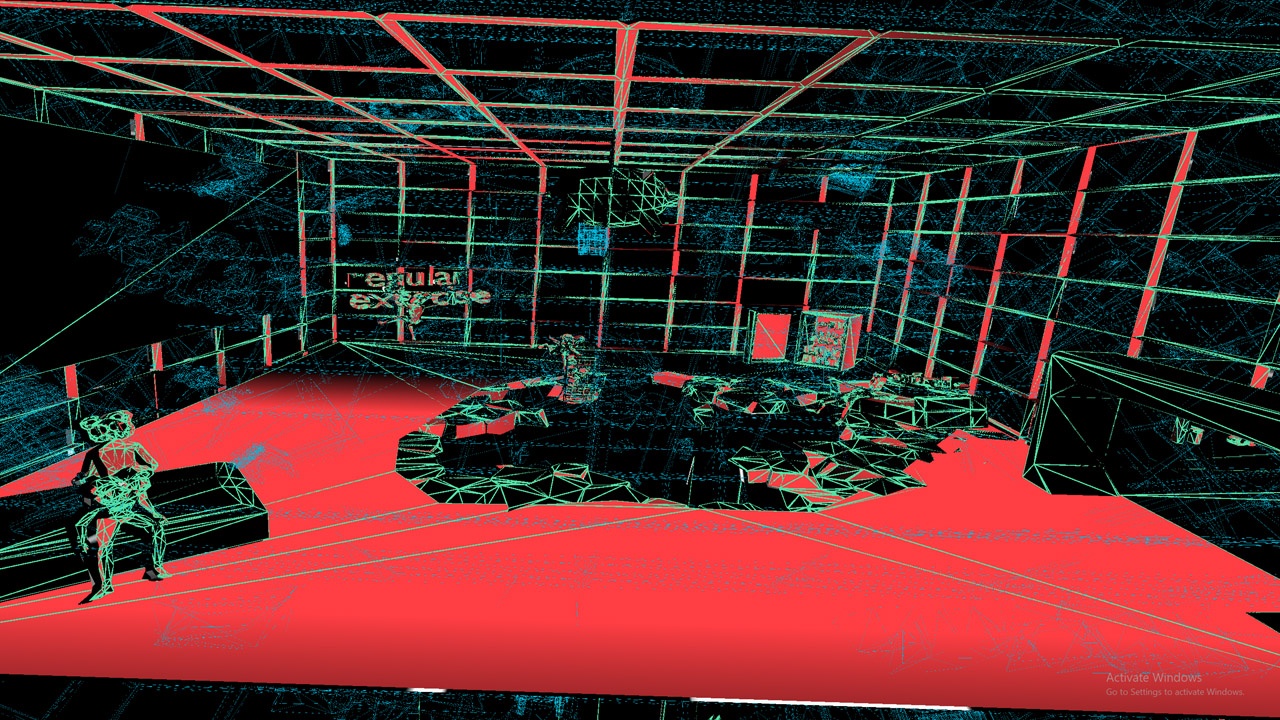Ultimate Crash Server FoxDot python custom functions
Find here some python functions, sometimes useful, to boost Foxdot. You can also see our tutorial on how to create new Foxdot function.
@@@ Loop Pattern Generator @@@
>> PBin(number)
@loop_pattern_method
def PBin(number):
""" convert a number to a binary list Pattern """
return [int(i) for i in str(bin(number)[2:])]
example :
d1 >> play("x", amp=PBin(21456))>> PTime()
@loop_pattern_method
def PTime():
""" Generate a pattern from the local machine time """
return [int(t) for t in str(Clock.get_time_at_beat(int(Clock.now()))) if t != '.']
example :
b1 >> blip(PTime(), dur=1/2)>> PTimebin()
@loop_pattern_method
def PTimebin():
""" Generate a pattern of actual time converted to binary """
return PBin(int(Clock.get_time_at_beat(int(Clock.now()))))
example :
b1 >> blip(PTime(), dur=1/4, amp=PTimebin())@@@ Global Functions @@@
>> lininf(start, finish, duration)
def lininf(start=0, finish=1, time=32):
''' linvar from start to finish but stay at finish after time '''
return linvar([start,finish],[time,inf], start=now)
def expinf(start=0, finish=1, time=32):
''' expvar from start to finish but stay at finish after time '''
return expvar([start,finish],[time,inf], start=now)
example :
b1 >> blip(lininf(0,7,32), dur=1/2, amp=lininf())
Clock.bpm = expinf(42,220,32)>> linbpm(targetBpm, duration)
def linbpm(endBpm=170, durBpm=128):
''' use with Clock.bpm = linbpm(220, 12) to change from current bpm to target bpm in x beats'''
Clock.bpm = linvar([Clock.bpm,endBpm],[durBpm,inf], start=now)
example :
Clock.bpm = linbpm(220,32)>> masterAll(args, value)
def masterAll(args = "dur", value=1):
""" change all active players args, restore with all previous value """
global valueDict
if args != "reset":
for p in Clock.playing:
if p in valueDict:
if args in valueDict[p]:
pass
else:
try:
valueDict[p][args] = p.__getitem__(args)
except:
valueDict[p][args] = 0
else:
valueDict[p] = {}
try:
valueDict[p][args] = p.__getitem__(args)
except:
valueDict[p][args] = 0
p.__setattr__(args, value)
else:
for k,v in valueDict.items():
for l, w in v.items():
try:
k.__setattr__(l, w)
except:
pass
valueDict = {}
example :
d1 >> play("x-", dur=PDur(5,8))
b2 >> blip([0,2,4,2] , dur=PDur(3,8))
masterAll("dur", 1) ## set all dur to 1
masterAll("reset") ## reset to previous values@@@ Random Generator @@@
>> PGauss(mean, deviation)
class PGauss(RandomGenerator):
''' Returns random floating point values using Gaussian distribution '''
def __init__(self, mean=0, deviation=1, **kwargs):
RandomGenerator.__init__(self, **kwargs)
self.args = (mean, deviation)
self.mean = mean
self.deviation = deviation
self.init_random(**kwargs)
def func(self, index):
if isinstance(self.mean, float):
return gauss(self.mean, self.deviation)
elif isinstance(self.mean, int):
return int(round(gauss(self.mean, self.deviation)))
example :
b2 >> dbass(PGauss(0,2), dur=PDur(5,8))>> PCoin(low, high, proba)
class PCoin(RandomGenerator):
''' Choose between 2 values with probability, eg : PCoin(0.25,2,0.2)'''
def __init__(self, low=0, high=1, proba=0.5, **kwargs):
RandomGenerator.__init__(self, **kwargs)
self.init_random(**kwargs)
self.low = low
self.high = high
self.proba = proba
def func(self, index):
return choices([self.low, self.high], [1-self.proba, self.proba])[0]
example :
b2 >> dbass(PGauss(0,2), dur=PDur(5,8), amp=PCoin(0,1,0.8))>> PChar(case, alpha)
class PChar(RandomGenerator):
''' Generate characters randomly, PChar(case, alpha)
case = 0 , only lowercase
case = 1 , only uppercase
case = 2 , lower case and uppercase
alpha = 0, only alpha
alpha = 1, only nonalpha
alpha = 2, alpha + nonalpha'''
def __init__(self, case=2, alpha=2, **kwargs):
RandomGenerator.__init__(self, **kwargs)
self.init_random(**kwargs)
self.case = case
self.alpha = alpha
def func(self, index):
if self.alpha == 0:
charList = alpha
elif self.alpha == 1:
charList = ''.join([x for x in nonalpha.keys()])
else:
charList = ''.join([x for x in nonalpha.keys()]) + alpha
if self.case == 0:
char = choice(charList)
elif self.case == 1:
char = choice(charList).upper()
else:
char = choice([choice(charList), choice(charList).upper()])
return char
example :
d2 >> play(PChar(2,2), dur=PDur(3,8))@@@ Pattern Method @@@
>> norm(mult) // mod
@PatternMethod
def norm(self, mult=1):
""" Returns the pattern with all values between 0 and 1*mult """
pos = self - min(self)
return (pos / max(pos))*mult
example :
print(P[0,2,4,3].norm(2)) -> P[0,1,2,1.5]>> clamp(min, max)
@PatternMethod
def clamp(self, mini, maxi):
""" Returns the pattern with all values clamped to min - max"""
return self.transform(lambda n: max( min(maxi, n), mini))
example :
print(P[0,2,4,6,8,10,125].clamp(5,10)) -> P[5, 5, 5, 6, 8, 10, 10]
>> lmap(min, max)
@PatternMethod
def lmap(self, oMin, oMax):
""" Retruns the pattern mapped to min and max values """
return ((self - min(self)) / (max(self)-min(self)) * (oMax - oMin) + oMin)
example :
print(P[0,2,4,6,8].lmap(200,8000)) -> P[200, 2150, 4100, 6050, 8000]
>> add(num)
@PatternMethod
def add(self, value):
''' pattern method add, so you can use with <sometimes>'''
return self + value
example :
b1 >> blip([0,2,4,2], dur=1/2).sometimes("add", 2)
>> rnd(number)
For this method, you need to edit the FoxDotlibPatternsMain.py file and add at the end of the GeneratorPattern class
def rnd(self, base=2):
""" Round up the generator random value to nearest base value"""
return self.transform(lambda value: round(base * round(float(value) / base),3))
example :
print(PWhite(0,1).rnd(0.25)[:8]) -> P[0.5, 0.0, 0.75, 0.25, 0.75, 0.5, 0.75, 0.5]
d1 >> play("x", dur=PWhite(0,0.9).rnd(0.25) + 0.25)
@@@ Player Method @@@
>> gtr(strings)
@player_method
def gtr(self, strings=1):
''' for guitar players, play notes like tabs'''
self.root = Pattern(strings).submap({0:-10, 1:-8, 2:-3, 3:2, 4:7, 5:11, 6:16})
self.scale = Scale.chromatic
return self
example :
g1 >> dbass(P[7,7,10,7,5,[3,P+[3,5,3]],2], dur=P[1.5,0.5,0.75,0.75,0.5,2,2]).gtr(2) ## the 2nd string A

Into The beast
Into the beast – 360 experience Playing around with 360…

REISUB – CONNEXION [05] – Syphon Identity Stealer
REISUB – CONNEXION [05] – W32 SYPHON IDENTITY STEALER [Data…

LiveCoding Strasbourg Workshop
LiveCoding Strasbourg Plusieurs fois par mois on se retrouve pour…

February 2022 – Monthly report !
FEBRUARY 2022 – Monthly report ! The second edition, fruitfull…

